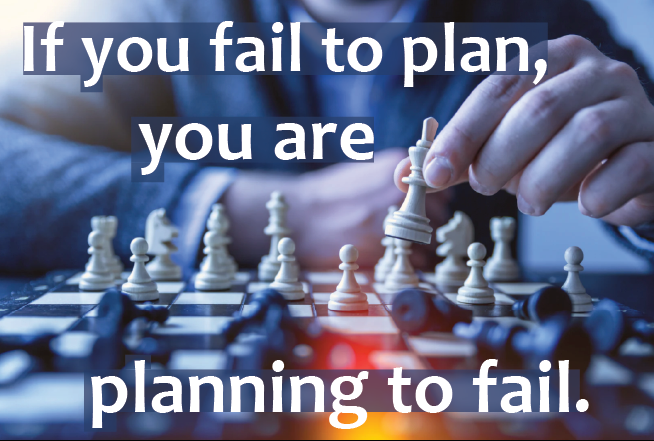Change in schools is a constant. We have all been part of many initiatives, some that stick and some that fall away. If change is to be sustainable, there needs to be a plan.
If you want the change to be a permanent part of your education community, you must sustain the initiative. This means that the change is not merely a onetime action. It is the development of relationships, practices and procedures that are established and become a lasting part of the community in which you work.
When a plan is established, the initiative’s impact is significantly increased. The purpose of the sustainability plan is to give time to find a solution to the issue at hand. The larger the issue, the more time to solve. With inclusionary practices, we are looking at a large system change. This will take some time and planning.


Strategic Planning: The Key to Success
Wishing something into being is not the same as planning something into being. Benjamin Franklin is attributed to have said, “If you fail to plan, you are planning to fail”. However, all planning is not the same. Planning needs to be careful, reflect best practice, and provide adequate preparation in advance of implementation.
In this brief video The Importance of Planning and Implementation (2:36), you will see that planning creates the opportunity for the balance of needs with resources. The plan:
- Identifies the goals to be accomplished
- Articulates strategies for success
- Defines the methods of implementation
- Directs and monitors all the steps in the process in proper sequence
In addition, the process:
- Provides directions
- Allows for analysis of alternative courses of action
- Reduces anxiety
- Minimizes impulsive and arbitrary decisions
There are many examples of planning that have not been successful, but if the plan is designed with monitoring, data, and opportunities to choose alternative courses of action, not only is the plan a good one, but the process of creating the plan builds a strong commitment for success.
If you interested in seeing some examples of action plans, several districts have shared resources they’ve used in their journey toward inclusive practices. Those materials can be accessed in our Action Plan Examples and Resources from the Field Google Drive folder.
Join us for our final Third Thursday to continue learning together and hearing from the field on strategies and successes.

Third Thursday
- IPP events are live-captioned and ASL-interpreted.
- Teams of special education and CTE instructors are encouraged to attend together.
- To access materials from previous events, visit the IPP Resources page.
Planning for Next Steps
May 20, 2021; 3-4 p.m. PT
With this year ending and the beginning of next year in sight, what is your plan to increase inclusive efforts in your classroom, your school, your district? How will you develop, or enhance a culture of inclusion? What structures need to be put into place? What skills need to be developed? Is there a practice you want to implement? Join us for an informal conversation to share your strategies and learn from the best practices of other educators.
Register for IPP Third Thursday on 05/20/2021 - Planning for Next Steps

Past Training Materials and Recordings
Slide decks and captioned recordings from CCTS trainings are available online under Inclusionary Practices Resources. Topics include:
- Accommodations 101
- Aligning High School and Beyond Plans and IEPs
- CTE and Special Education Partnerships
- Effective Collaboration
- Finding Your CTE Data
- T-Folio 101+
- ...and more!

Don't miss the latest CCTS IPP updates!
